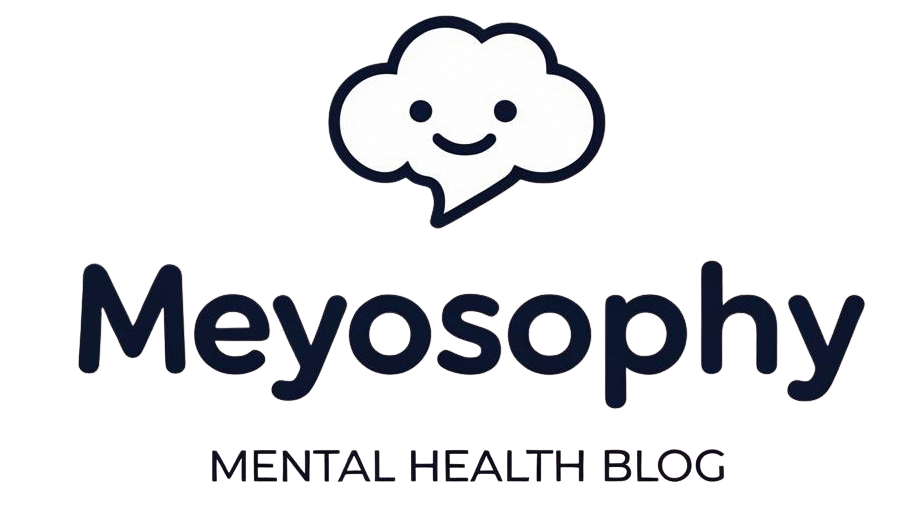Have you ever found yourself staring at a screen or going through the motions of daily life, only to realize… you don’t feel much of anything? No joy, no sadness, not even frustration. Just flat. If so, you’re far from alone.
Emotional numbness is more common than you might think, especially in times of prolonged stress or struggle. It can look like not reacting to good news, feeling disconnected from others, or wondering where your emotions went. In this post, we’ll explore why this happens, what might be causing it, and how you can slowly begin to reconnect with your feelings. Gently and on your own terms.
What Is Emotional Numbness?
Emotional numbness is a state where you feel emotionally detached or “shut down.” You might notice that:
- It’s hard to feel joy, sadness, or anger; even when it makes sense to
- Crying or laughing doesn’t come easily
- You feel disconnected from your thoughts or the people around you
- There’s a strange emptiness, like you’re observing life through a thick fog
This isn’t the same as feeling calm. Numbness isn’t peace. It’s the absence of emotional experience altogether and it can feel incredibly confusing.
Common Causes of Emotional Numbness
1. Stress Overload & Burnout
When your nervous system is constantly on high alert; whether due to work, family, health, or the state of the world, it can eventually hit a wall. Your brain may activate a “freeze” response, shutting down your emotional system in an attempt to protect you from further overwhelm¹.
2. Depression
A common symptom of depression is emotional blunting. Feeling like you’ve lost access to both the highs and the lows. This often comes from changes in brain chemistry, particularly around serotonin and dopamine².
3. Trauma & PTSD
For those who’ve experienced trauma, emotional numbness can become a survival strategy. If feeling certain emotions once led to pain or danger, your brain may now shut them down as a reflex to avoid retraumatization³.
4. Medication Side Effects
Some antidepressants and psychiatric medications (especially SSRIs) are known to flatten emotional range. You might find yourself less affected by bad news, but also less able to enjoy good things⁴.
5. Substance Use
Substances like alcohol or drugs can offer short-term relief, but over time, they train the brain to rely on them to feel anything. The result? More emotional dullness⁵.
6. Exhaustion & Sleep Deprivation
If you’re physically drained, it becomes harder to regulate emotions. Sometimes the body’s way of coping with deep fatigue is simply… switching the emotional lights off⁶.
What’s Happening in the Brain?
Emotional numbness often results from a breakdown in communication between the amygdala (the brain’s emotion center) and the prefrontal cortex (its thinking center). Under chronic stress, the brain prioritizes survival and emotions get dialed down to conserve energy⁷.
This can be helpful temporarily, but when the system doesn’t reset, you’re left feeling emotionally “off” even when the danger has passed.
The Impact of Feeling Numb
At first, numbness might feel like a break from feeling too much. But over time, it can start to affect your day-to-day life:
- Strained Relationships – It’s hard to connect with others when you don’t feel connected to yourself
- Decision-Making Struggles – Emotions help us know what matters; without them, choices feel foggy
- Loss of Motivation – When joy is dulled, even activities you used to love can feel pointless
- Worsening Mental Health – Numbness often feeds into anxiety and depression, creating a loop⁸
Numb vs. Calm: There’s a Difference
Let’s be clear: numbness isn’t the same as calm. Calm is grounded and present, you’re still able to feel. Numbness is more like watching your own life from behind a glass wall. You’re there, but not really there.
How to Reconnect With Your Emotions
Here are some gentle steps you can take if you’re feeling emotionally flat or disconnected:
1. Start With the Basics
Check in on your essentials:
- Are you sleeping at least 7–9 hours a night? If you’re a woman, you might even need more
- Are you eating enough and regularly?
- Are you drinking water and moving your body?
These might seem simple, but your brain can’t access emotional clarity without physical support⁶.
2. Try a Body Scan
Emotions often start in the body. Try this:
- Sit or lie down comfortably.
- Close your eyes.
- Slowly scan your body from head to toe, noticing sensations (tightness, warmth, tingling) without judgment.
Even just acknowledging what’s there can create the tiniest spark of emotional awareness. There are many guided body scan’s online, if that’s what you prefer.
3. Journal It Out
Writing can be a powerful tool to access feelings that don’t quite make it to the surface. Try:
- “What did I notice today, physically or mentally, that felt different?”
- “When did I feel even a tiny spark of something? Maybe anger, sadness, joy etc.”
No pressure to write something profound, this is for you. Read more about journaling here.

4. Get Creative
You don’t need to be “artistic” to feel something. Put on music. Doodle. Dance around your kitchen. Pick up a brush. Creative outlets let your body speak when your mind can’t find the words.
5. Ease Into Emotion
If numbness stems from trauma or deep sadness, it can be scary to feel again. Start small:
- Watch an emotional scene from a movie.
- Notice what you feel in your chest, throat, or face.
- Pause. Breathe. Stay curious, not critical.
Your emotional muscle might be weak, but that doesn’t mean it’s gone. Take things slow and ask for help if you need it.
6. Talk to Someone Safe
Whether it’s a therapist, a friend, or even a voice note to yourself, naming your numbness can start to lift it. Saying “I feel nothing and I don’t know why” is a powerful beginning.
7. Review Medication If Needed
If you think your medication may be contributing, don’t adjust it alone. Talk to your prescriber. There might be alternatives or tweaks that help you feel more like you again⁴.
When to Get Extra Help
If your numbness:
- Has lasted for weeks or months
- Is making daily life harder
- Is paired with other signs of depression or trauma
Then professional support is not just helpful, it’s important. You deserve to feel whole and supported.
Final Thoughts
If you feel emotionally numb, it doesn’t mean you’re broken. It means your mind and body have done their best to protect you and now, they may need help finding the way back. Whether it takes a week or a year, know this: feelings can come back. And when they do, you’ll be there to greet them with understanding, not fear. Be kind to yourself. You and your body are doing the best you both can.
📚 Sources
- McEwen, B. S. (2007). Physiology and neurobiology of stress and adaptation. Physiological Reviews.
- Smyth, J. M., & Pennebaker, J. W. (2008). Exploring the boundary conditions of expressive writing. British Journal of Health Psychology.
- American Psychiatric Association. (2013). Diagnostic and Statistical Manual of Mental Disorders (5th ed.).
- Sinclair, J. M., et al. (2020). Antidepressant-induced emotional blunting. Journal of Clinical Psychiatry.
- Koob, G. F., & Le Moal, M. (2006). Neurobiology of addiction. Academic Press.
- Walker, M. P. (2017). Why We Sleep: Unlocking the Power of Sleep and Dreams. Scribner.
- Porges, S. W. (2011). The Polyvagal Theory. Norton.
- Fava, M., et al. (2002). Emotional blunting as a side effect of SSRIs. Harvard Review of Psychiatry.
Disclaimer: I’m not a mental health professional, everything here is shared from research and personal experience. If you’re feeling overwhelmed or need support, please consider talking to a qualified professional. You’re not alone. If you’re in the U.S., you can call or text 988 anytime. For help in other countries, visit https://findahelpline.com.


This post captures the experience of emotional numbness so well, as someone who has experienced this. Your breakdown of possible causes and practical steps for reconnecting with feelings is both validating and hopeful. Thank you for addressing a topic many struggle with in silence.
Thank you. I hope it’s helping someone out there💛
What a great article. Thank you for bringing to light what many people experience on a daily basis but may not openly talk about. Great suggestions for tackling emotional numbness.
Thank you💛
I get this all the time. I tend to fawn when I am overstimulated and I cannot feel a thing. To reconnect I need to lower my stimulation levels and calm my nervous system again.
Good to hear you’ve found something that works for you! It’s not easy when this happens. Thank you for sharing💛
I really loved this post. So raw and vulnerable, and something we all face from time to time. Thanks for sharing and especially for including the coping techniques in here!
Thank you! I hope it helps someone out there💛
This makes so much sense. I’ve experience quite a few of these.
wow, thank you for voicing out for people who go through emotional numbness. i love your site!
Thank you, you’re so kind💛